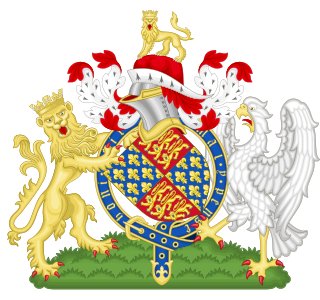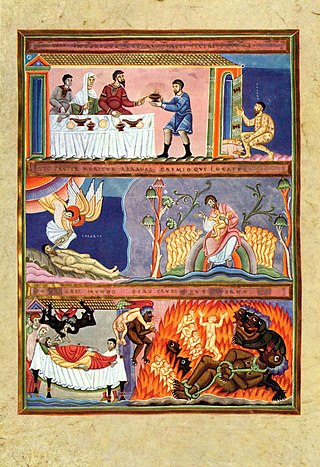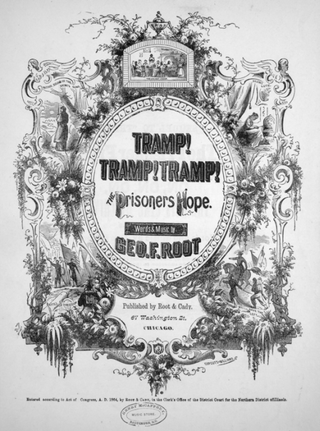
Abraham Lincoln delivered his second inaugural address on Saturday, March 4, 1865, during his second inauguration as President of the United States. At a time when victory over secessionists in the American Civil War was within days and slavery in all of the U.S. was near an end, Lincoln did not speak of happiness, but of sadness. Some see this speech as a defense of his pragmatic approach to Reconstruction, in which he sought to avoid harsh treatment of the defeated rebels by reminding his listeners of how wrong both sides had been in imagining what lay before them when the war began four years earlier. Lincoln balanced that rejection of triumphalism, however, with recognition of the unmistakable evil of slavery. The address is inscribed, along with the Gettysburg Address, in the Lincoln Memorial.

The Statute of Labourers was a law created by the English Parliament under King Edward III in 1351 in response to a labour shortage, which aimed at regulating the labour force by prohibiting requesting or offering a wage higher than pre-Plague standards and limiting movement in search of better conditions. The popular narrative about its success and enforcement holds that it was poorly enforced and did not stop the rise in real wages. However, immediately after the Black Death, real wages did not rise, despite the labour shortage.

The "Battle Cry of Freedom", also known as "Rally 'Round the Flag", is a song written in 1862 by American composer George Frederick Root (1820–1895) during the American Civil War. A patriotic song advocating the causes of Unionism and abolitionism, it became so popular that composer H. L. Schreiner and lyricist W. H. Barnes adapted it for the Confederacy.

All Summer Long is the sixth album by American rock band the Beach Boys, released July 13, 1964 on Capitol Records. Regarded as their first artistically unified collection of songs, as well as one of the first true concept albums, it marked the Beach Boys' first LP that was not focused on themes of cars or surfing. Instead, the songs are semi-autobiographical and relate to the experiences of a typical Southern Californian teenager, a theme encapsulated by the title track, "All Summer Long", and the often-imitated front cover, a modernist style photo collage depicting the band members fraternizing with young women on a beach.

George Frederick Root was an American songwriter, who found particular fame during the American Civil War, with songs such as "Tramp! Tramp! Tramp!" and "The Battle Cry of Freedom". He is regarded as the first American to compose a secular cantata.

Sullivan Ballou was an American lawyer and politician from Rhode Island, and an officer in the Union Army during the American Civil War. He is remembered for an eloquent letter he wrote to his wife Sarah a week before he was mortally wounded in the First Battle of Bull Run. He was left behind by retreating Union forces and died a week after the battle.
"Sussex by the Sea" is a song written in 1907 by William Ward-Higgs, often considered to be the unofficial county anthem of Sussex. It became well known throughout Sussex and is regularly sung at celebrations throughout the county. It can be heard during many sporting events in the county, during the Sussex bonfire celebrations and it is played by marching bands and Morris dancers across Sussex. It is the adopted song of Brighton & Hove Albion Football Club, Sussex Division Royal Naval Reserve, Sussex Association of Naval Officers and Sussex County Cricket Club.

A pirate code, pirate articles, or articles of agreement were a code of conduct for governing pirates. A group of sailors, on turning pirate, would draw up their own code or articles, which provided rules for discipline, division of stolen goods, and compensation for injured pirates. Breaking the code could get a pirate marooned or killed.

Hades, according to various Christian denominations, is "the place or state of departed spirits", borrowing the name of Hades, the Greek god of the underworld. It is often associated with the Jewish concept of Sheol.
This is a comprehensive listing of official post-Idol releases by various contestants of the television show American Idol.

The alma mater of the University of Pittsburgh was adopted soon after the University changed its name in 1908 from the Western University of Pennsylvania to its current moniker. Lyrics were written by George M. P. Baird, class of 1909 and were set to the tune of what was then the Austrian National Anthem. A new tune for the "Alma Mater" hymn was composed by Charles W. Scovel, class of 1883, but it was not widely adopted and was either lost or became obscure.

"Tramp! Tramp! Tramp! " was one of the most popular songs of the American Civil War. George F. Root wrote both the words and music and published it in 1864 to give hope to the Union prisoners of war. The song is written from the prisoner's point of view. The chorus tells his fellow prisoners that hope is coming.

HitClips is a digital audio player created by Tiger Electronics that plays low-fidelity mono one-minute clips of usually teen pop hits from exchangeable cartridges. It first launched in August 2000 with 60-second microchip songs featuring Britney Spears, NSYNC, and Sugar Ray. The following year songs by Destiny's Child, Backstreet Boys, Dream, and Pink were additionally released. There is a version for young children called KidClips. Tiger Electronics had licensing agreements for HitClips with popular major record labels including Atlantic Records, Jive Records/Zomba Label Group, and Capitol Records. HitClips was first promoted by McDonald's, Radio Disney, and Lunchables. By June 2002, HitClips players and music disks combined had sold more than 20 million units.

Low Dog (c. 1846–1894) was an Oglala Lakota chief who fought with Sitting Bull at the Little Bighorn.
Adae Kese Festival is an important albeit rare celebration among the Ashantis in Ghana. There are two main periods for this celebration. One is Awukudae and the other is Akwasidae It glorifies the achievements of the Asante kingdom. It was first celebrated to the achievement of statehood of the people, after the war that the Ashantis had their independence, in the Battle of Feyiase which they fought against the people of Denkyira. It is also the occasion when the purification ceremony of Odwira is performed at the burial shrines of ancestral spirits. Generally, this coincides with the harvest season of yam and hence the ritual was also called the "Yam custom" by Europeans. It is celebrated every two weeks by the people in accordance with the calendar of the Akans based on the cycle of forty-two days and nine months in their calendar. The festival is mostly held to climax celebrations of specific achievements and milestones of the people of the Ashanti kingdom. The festival is a day of rest so it is forbidden to work on that day.











